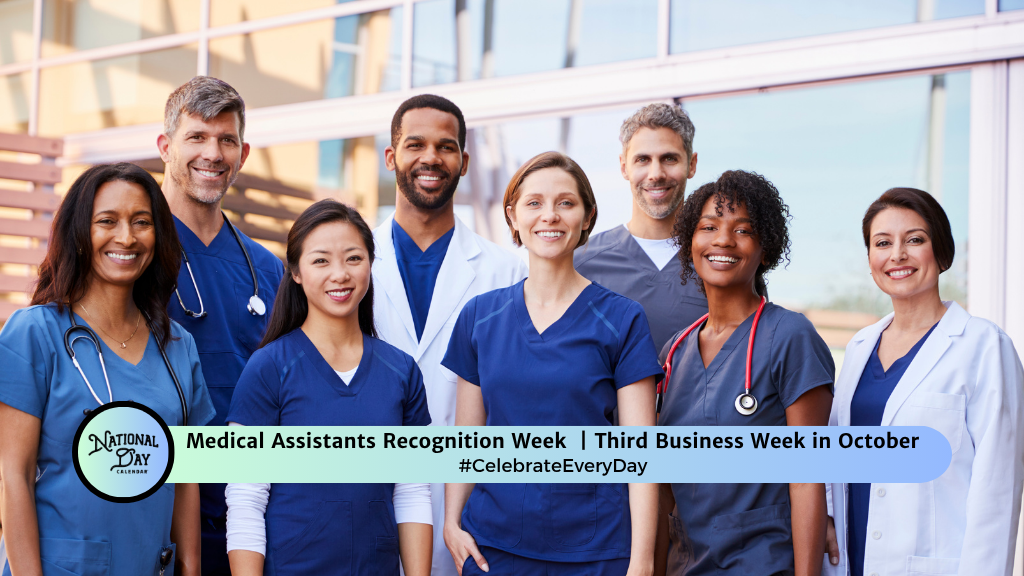
Handout During Medical Assistant Recognition Week
I. Introduction: The Heartbeat of Healthcare?
- A. Medical Assistants Recognition Day: What is this day? Honoring the professionals who are essential to patient care and clinic operations.
- B. The Big Question: Do you want a rewarding career in healthcare without spending four or more years in college first?
II. The Medical Assistant (MA): Who They Are
- A. Job Description: The Versatile Professional
- The Front-Office Superstar (Administrative):
- Scheduling appointments and managing patient flow.
- Handling insurance, billing, and coding.
- Managing patient records (Electronic Health Records – EHR).
- The Clinical Care Partner (Clinical):
- Taking vital signs (blood pressure, temperature, etc.).
- Collecting and preparing specimens (blood draws/phlebotomy, urine).
- Assisting the physician during exams and minor procedures.
- Explaining treatment procedures to patients.
- The Front-Office Superstar (Administrative):
- B. Where They Work (Diverse Settings):
- Physicians’ Private Offices and Clinics (most common).
- Hospitals (outpatient departments).
- Urgent Care Centers.
- Specialty Offices (Pediatrics, Cardiology, Dermatology, etc.).
III. Why Choose Medical Assisting? The Student Benefits?
- A. Fast-Track Entry into Healthcare
- Quick Training: Many programs offer a certificate or diploma in under a year to 18 months, much faster than a four-year degree.
- Lower Cost: Less debt, faster path to earning an income.
- B. Excellent Job Market and Stability
- High Demand: Employment is projected to grow much faster than the average for all occupations. Healthcare is always hiring!
- Job Security: MAs are essential for the efficient operation of nearly all medical facilities.
- C. The Ultimate Stepping Stone
- Gain Experience: Provides invaluable, real-world, hands-on clinical and administrative experience.
- Career Advancement: It’s the perfect launchpad for future roles like Registered Nurse (RN), Physician Assistant (PA), or Health Administrator. You can get paid while you decide your next move!
IV. Skills and Education: How to Get There
- A. Essential Soft Skills (The MA Mindset):
- Compassion and Empathy: You are the main bridge between the patient and the doctor.
- Attention to Detail: Accuracy in records and procedures is critical.
- Communication: Clearly explaining procedures and listening to patient concerns.
- Multitasking: Juggling administrative and clinical duties smoothly.
- B. Educational Path and Certification
- Required Education: Postsecondary non-degree award (certificate or diploma).
- The Gold Standard: Certification: Earning credentials like Certified Medical Assistant (CMA) or Registered Medical Assistant (RMA) boosts your salary and employability.
V. Conclusion: Your Impact on Patient Care
- A. The Role of an Advocate: MAs are often the team member patients spend the most time with, making them crucial for comfort and positive patient outcomes.
- B. Call to Action: If you have compassion, attention to detail, and want a stable, rewarding career helping others, Medical Assisting could be your ideal path. Find out about local programs today!
Download the PDF Handout here.